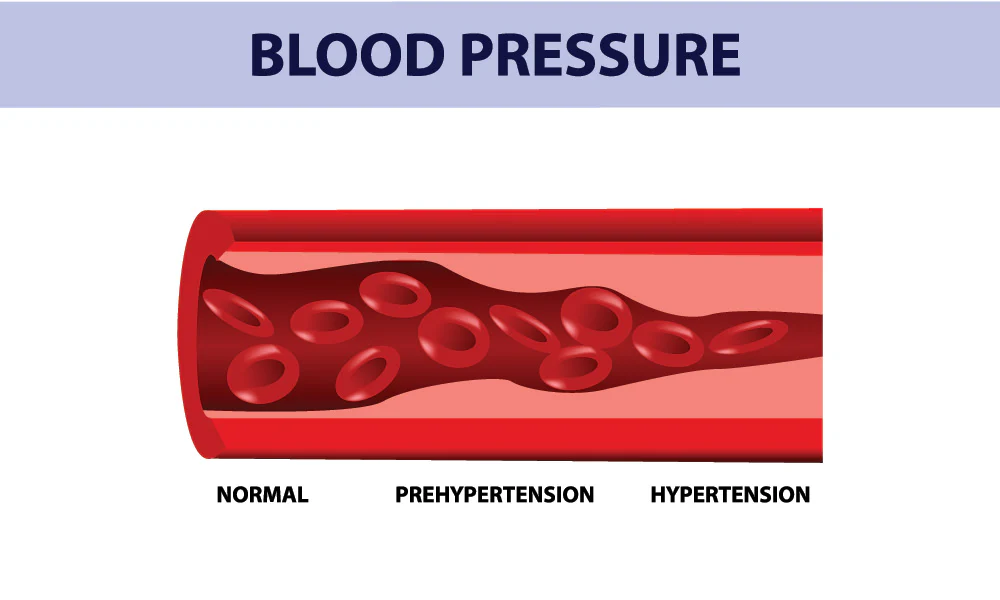WARNING: This product contains nicotine. Nicotine is an addictive chemical.
The debate surrounding e-cigarettes and their health impacts is ongoing, with high blood pressure being a particular concern. In this guide, we will review the latest findings and assess if there’s a connection between vaping and hypertension. We’ll dive into clinical studies, user experiences, and scientific data, offering a clear view of whether vaping could affect your blood pressure.
Nicotine, the primary stimulant in e-cigarettes, is known to have a significant effect on the cardiovascular system. When inhaled, nicotine causes blood vessels to constrict, leading to an increase in heart rate and blood pressure. This can be especially problematic for users with pre-existing hypertension or cardiovascular diseases.
Clinical studies have shown that nicotine causes a temporary spike in blood pressure shortly after consumption, whether through traditional cigarettes or vaping. However, while the short-term effects are well documented, the long-term impact of e-cigarettes on blood pressure remains less clear. For example, a study published in the Journal of the American Heart Association indicated that although vaping can elevate blood pressure acutely, the long-term cardiovascular effects require more investigation.
A frequent vaper with mild hypertension might notice a slight increase in their systolic pressure after using nicotine-based e-cigarettes. However, whether this results in lasting damage over years of use is still a matter of ongoing research.

It’s essential to compare the impact of e-cigarettes to that of traditional cigarettes to assess the risks. Smoking traditional cigarettes is known to cause chronic hypertension and other cardiovascular problems, with long-term damage being well documented. In contrast, vaping is often perceived as a “healthier” alternative because it lacks some of the harmful chemicals found in regular cigarettes.
However, both forms of nicotine consumption can lead to elevated blood pressure. Studies have found that while e-cigarettes might not cause the same level of oxidative stress as tobacco smoking, they still affect the cardiovascular system. E-cigarettes also deliver high doses of nicotine, especially with certain high-strength e-liquids, and this can lead to prolonged episodes of high blood pressure.
| Nicotine Source | Effect on Blood Pressure | Long-term Risks |
|---|---|---|
| Traditional Cigarettes | Consistent increase, chronic | Higher risk of hypertension, heart disease |
| E-Cigarettes | Temporary increase, variable | Unclear; possible heightened risk with prolonged use |
One significant difference between traditional smoking and vaping is that e-cigarettes come with nicotine-free options. These e-liquids, without nicotine, should theoretically have a minimal impact on blood pressure. For individuals looking to quit smoking but concerned about their blood pressure, nicotine-free vaping might offer a safer alternative.
However, some experts caution that even without nicotine, the act of vaping could still cause minor cardiovascular strain. A study on nicotine-free vaping showed little to no effect on blood pressure in short-term scenarios. Still, long-term research is sparse, and factors such as the chemicals in e-liquid flavors and how the body reacts to aerosolized particles need further study.
A user who switches to nicotine-free e-cigarettes after years of smoking reported stable blood pressure levels, with fewer spikes compared to when they vaped nicotine-based e-liquids. This shows that reducing nicotine content can be beneficial for blood pressure management.

Not all vapers experience the same blood pressure response. The impact can vary based on several factors:
| Factor | Impact on Blood Pressure |
|---|---|
| Nicotine Strength | Direct correlation with higher blood pressure |
| Frequency of Use | More frequent use, longer periods of elevated BP |
| Pre-existing Conditions | Amplifies risk of chronic hypertension |
A heavy vaper using a high nicotine concentration of 50mg/ml reported frequent spikes in blood pressure, particularly after long sessions of vaping. After switching to a lower concentration of 3mg/ml, these episodes became less frequent and less severe, demonstrating the role of nicotine strength in blood pressure regulation.
E-cigarettes, particularly those containing nicotine, can cause temporary spikes in blood pressure, similar to traditional cigarettes. Nicotine constricts blood vessels and increases heart rate, which can be problematic for individuals with pre-existing hypertension or cardiovascular conditions. While the short-term effects of vaping on blood pressure are documented, the long-term consequences are less clear. Comparatively, traditional cigarettes pose a greater risk for chronic hypertension, but vaping still carries potential risks, especially with high-strength nicotine. Nicotine-free e-cigarettes offer a safer alternative, but further research is needed to understand their long-term effects on blood pressure. Users concerned about hypertension should opt for lower nicotine concentrations or nicotine-free options and monitor their health carefully.
